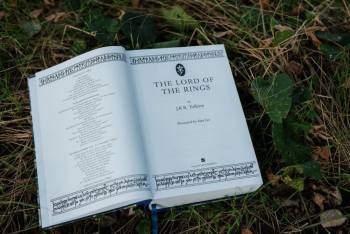Is Not Reading Books a Bad Thing? – Alternatives?

To read or not to read, that’s the question which I aim to help untangle here.
Not reading books is no longer considered a definitively bad thing. In today’s world, we can now harness the power of digital technology to expand the ways in how we communicate. Nonetheless, reading books has traditionally been one of the only means to pass information down to future generations.
See what this discussion entails on the arguments for and against whether the practice of reading books is genuinely worthwhile.
The Benefits of Reading Books
Cultivating a habit of reading books has long been held by communities across the world to be a symbol of not only erudition but also a lifelong thirst for knowledge and being relatively successful.
These may just be stereotypes, or they may be supported by evidence. Below we examine some of the most valuable benefits of reading books.
Build Your Knowledge Base
One of the most natural outcomes of reading a book is that you (hopefully) learn new things about a subject you’re interested in.
Sometimes these new things are cold hard facts, or truths, that serve as markers of the era in which you exist. Other times, you’re acquiring potentially new insights in a more abstract subject, such as the political sphere or the arts.
Ultimately, building knowledge is one of the main reasons why people even choose to spend the time and read books in the first place.
Improve Vocabulary and Reading Comprehension
Developing a habit of reading books from your school years into adulthood has been found to pay dividends, and often to levels beyond what one may ordinarily expect.
The first multiplicative dividend is a steadily increasing vocabulary in a society that prizes and rewards those with outstanding communication skills. What better place to start working towards this feat than by adding new vocabulary to your arsenal?
Another dividend that keeps on paying is that by struggling through new, complex passages in a book, you can gain supreme confidence in not only written communication patterns but also humanistic thought processes.
Grow New Neurons and Brain Pathways
According to clinical psychologist Sabrina Romanoff, reading actually grows new brain cells–called neurons–and connections between brain cells, which astonishingly “accelerates processing speed.”
I mean, who doesn’t want to be a faster thinker!
Stay Mentally Sharper in Old Age
Apparently, as we grow older, two of the main cognitive functions that begin to dwindle are one’s attention span and the ability to remember things, particularly things from the recent past that might not have been able to penetrate the long-term memory part of the brain in the first place.
Here’s the good news: reading even just once per week has been found in a study to be associated with a significantly reduced likelihood of cognitive decline (e.g., attention and memory). In fact, older people who take the time out of their day to read even enjoy a lower risk of dementia.
Maybe reading is the second-best medicine, after laughter?
Potentially Enjoy a Longer Lifespan
Have you ever noticed how people with something to live for and look forward to, overall literally live longer lives?
A 2017 published study confirms this by finding that people who consider themselves book-readers ended up having a 20% lower risk of mortality over 12 years than those who didn’t consider themselves book-readers.
When 100% risk of mortality means certain death, a difference of 20% really makes a considerable difference!
How To Be Successful Without Reading Books
Just because someone is a chronic book-reader doesn’t automatically mean they’re successful.
Success comes in a nearly infinite number of shapes, and below are some ways you can get similar effects to reading books without actually holding a book in your hand.
Take Online Courses
Reading books isn’t the only way to take a course. Nowadays, it’s possible to earn multiple advanced degrees online if so desired.
With MOOCs like Coursera and edX and other digital course repositories like Udemy, Lynda, and Skillshare, the Internet is proving to be an oftentimes even better educational platform than those static books.
Listen to Audiobooks and Podcasts
For those continuously on the go, listening to audiobooks or podcasts may be the only way you can find the time to learn something new–whether it be technical tips, like investing basics, or something for everyone, like engaging in foreign languages.
Thankfully, the audio verse is booming, with thousands of new podcast episodes and new audiobooks being released every week through market players, such as Amazon’s Audible and many others.
Attend Community Meetup Groups and Seminars
You’re not limited to learning in your own personal space, either. Have you ever wanted a team of people just like you to learn something like real estate investing or how to start your own business?
Try joining some local meetup groups in your community, or attend seminar presentations when people stop by in your town to share their vision and tools. What you learn may end up shaping the next decade of your life!
Work at Jobs That Advance Your Career
Here’s a good one: how about getting paid while learning and gaining career experience? There’s a variety of ways to make this one work for you.
One way to get started in a profession that interests you is to get hired for an entry-level position at a company with personal development potential to move higher in the chain.
Alternatively, there are even ways to job-hop from profession to profession while expanding your exposure to various types of responsibilities. Eventually, by connecting these experiences together, you might even have a good shot at becoming one of the top leaders at a corporation one day. Or, you can become a competitor in an industry of your choice by designing your own startup.
To Read or Not to Read Books: Choosing What’s Good for You
While the health benefits of reading books are difficult to ignore, who said you couldn’t get an even better health boost by leaving the house and getting your hands dirty with something you enjoy doing?
Consider Making Short-Term Investments for Long-Term Benefits
Even those who love books understand that reading can be very time-consuming, and we all enjoy having the luxury of deciding what to do in our spare time.
However, by taking just thirty minutes a few times a week to do some serious reading–or even by reading the news every day for an hour–it’s possible to convert our short-term “sacrifices” of time into long-term benefits of better health, productivity, and overall quality of life.
Explore All Available Options
Of course, this isn’t a one-size-fits-all kind of a scenario either.
Today’s rapidly advancing world is focused largely on connecting people together in a common medium, such as social media, while also enabling the propagation of the most current information to audiences worldwide. Indeed, times are changing, and so should the way we think about how to live successfully.
If you want to become a medical doctor, a lawyer, or a professor, then there’s still no good recourse other than learning how to devour books with a passion. However, if you want to be a successful trader in the financial markets, an artist, or a real estate developer, there are already ways out there to achieve these (and more!) without ever reading a physical book.
Conclusion
In the end, the decision is yours to choose how you’d like to be successful. While an abundance of careers still requires reading books, not reading books shouldn’t be seen as an entirely bad thing, either.






